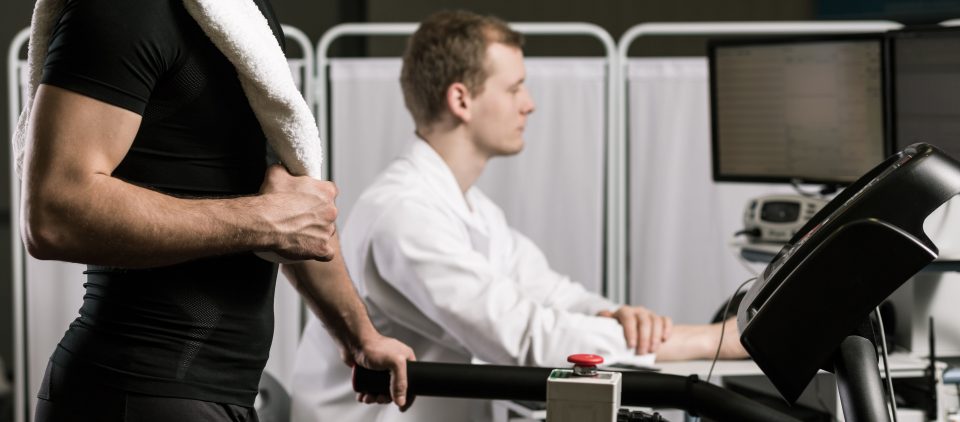By Kwabena “Bobo” Blankson, MD, FAAP / Contributor
At our busy adolescent medicine practice, I sometimes get the impression that parents view the sports/pre-participation physical as a chore, another box to check so that their kids can play sports for the year. In the mind of this medical doctor, that physical is so much more. Here are the essentials during a sports physical:
1.) Evaluate old/new injuries
A thorough musculoskeletal exam can assess whether old injuries properly healed or if newer ones have developed. If necessary, physical therapy can be initiated so your athlete is ready for the upcoming season. Has your student athlete had a concussion before? Sometimes coaches and parents completely miss them! Signs and symptoms to look for include headache, dizziness, irritability, memory issues and change in behavior. Loss of consciousness does NOT determine the severity of a concussion. Encourage your student athletes to be honest with you and with coaches when they feel injured or “not right.” Help them understand that cognitive and physical rest after a concussion is not punishment; it’s simply the right thing to do so they can get back to playing their sport at a high level. If you’re not sure whether it’s a concussion, bring your child to the medical professionals like myself who can answer the question for you.
2.) The heart, the heart, the heart
One of the most important features of the sports physical is the cardiac assessment. Has your student athlete ever passed out or had chest pain while exercising? Do you have a family history of sudden death at a young age? Your doctor should be listening to your student athlete’s heart in at least three different positions—he or she is listening for murmurs that could signal potential problems. Over the last few years, there has been some controversy over the need for EKG/echocardiograms for student athletes. In my professional opinion, more invasive testing is only needed if your doctor finds concerning information on the history and physical exam.
3.) Healthy behaviors assessment (95210)
Your child’s sports physical is more than just an exterior tune-up! Beyond the physical exam, there are five key healthy habits I address 9-5-2-1-0
9 hours of sleep (crucial to muscle recovery and brain
development)
5 servings of fruits/vegetables a day (minimum)
2 hours or less of entertainment screen time
1) hour or more of exercise/active play (they are likely getting
this, but if they play a fall or winter sport, the summer
doesn’t mean NO exercise)
0) sugary drinks (Drink more water! Sports drinks are fine,
water is better.)
4.) Mental health assessment
At our medical practice, we take every opportunity to assess mental well-being, whether you’re in office for a cough or a concussion. It’s important—adolescence can be a challenging time. That physical may be the only opportunity a clinician has to assess mental well-being, to give the patient that chance to say they have “sad days,” or admit to anger problems, or poor coping skills. It gives us the opportunity to refer to appropriate mental health resources and get your student athlete help if needed. We may ask you to step out of the room for just a couple of minutes to have this confidential time with your young adult student athlete. And of course, if we pick up on something concerning, we will always involve you in the ensuing discussion.
Parents, your work isn’t done after I sign off on the physical paperwork. In fact, it’s just beginning. In-season assessment of your student athlete is as important to their success as the physical. Are your student athletes showing signs of burnout? Are they trying to “suck it up” and play through injuries when they should be resting? Every parent should be on high alert for overuse injury, especially at the beginning of the season and the midway point. Training is important. But bear in mind that studies have shown that youth who train more than 16 hours a week are at increased risk of injury requiring medical attention. Other studies report training more hours per week than their age in years is an injury risk factor. It’s okay for parents to say, “take a day off,” even if it makes them unpopular with the coach and their teen. Get a doctor’s note if backup is needed.
Psychological burnout is a different kind of overuse injury. When a teen has chronic fatigue, decreased sports performance, and lack of enthusiasm about practice or competing, consider mental burnout. Keeping workouts fun, cross-training, resting one to two days per week and taking longer scheduled breaks are all strategies to keep an athlete fresh, focused, and ready to excel in sports, school, and personal development. Remember, our student athletes should always be playing for the RIGHT reasons. The love of the game. Fitness. Social connectedness. Wins, trophies, and awards will never bring sustained happiness.
I think there’s an athlete in every young person. That doesn’t mean everyone is cut out for varsity sports or is destined to play in college or the professional leagues. But this does mean that fitness should be an important part of every student’s education and development. And participating in activities that improve fitness is good for the mind, body and spirit.
So the next time you take your student athlete in for a physical, take the “routine” out of it. It might be the most important medical assessment of the year!


